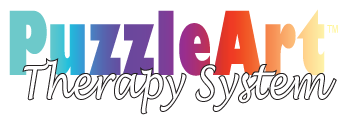Memory Loss? Forget About It!
For as long as humanity has been aging, we've been lamenting the process. In The Maxims of Ptah-Hotep (c. 2200 BCE), Ptah wrote on memory loss and aging,
“. . . the progress of age changes into senility. Decay falls upon man and decline takes the place of youth… The mouth is silent, speech fails him; the mind decays, remembering not the day before.”
While Ptah may have been a bit melodramatic, most everyone has felt the weight of getting older. Who hasn't walked into a room only to realize they have absolutely no idea why they're there, or spent ages searching for an important something-or-other? Helping others combat issues of memory loss at any age is crucial to our success as practitioners.
Memory
When memory lapses become more common, reaction times slow, or words don't come as easily, panic often begins to set in that memory loss is unavoidable. But as we know, this is not an inevitable part of aging! People don't have to sit around waiting to forget what they had for breakfast!
Fortunately for all of us, we can take daily initiatives to improve our memory, which greatly increases our quality of life regardless of age. From 3 to 103, we can all benefit from increased memory.
Recent studies demonstrate that working memory capacity, long thought of as a constant, can be improved through training. We CAN improve memory loss! The changes in cortical activity after training could be evidence of training-induced plasticity in our neural systems.
Since working memory is essential to how the brain handles information – how we process it, integrate it, retrieve it, and apply it – this basic functionality is vital to performing daily tasks throughout the life span. From memorizing the alphabet to learning to read, playing team sports to participating in a monthly book club, solving problems, meeting deadlines, setting and reaching goals – all of these (and more!) are dependent on working memory.
The Eyes of Memory
The connections between our eyes, brain, and working memory have powerful implications. Our brains process information all of the time, and we make decisions constantly about what to attend to and what to discard. 80 percent of the sensory information the brain receives comes through our eyes, which means we need to pay particular attention to being sure the eyes and the brain know how to take in what is being seen.
When someone has 20/20 vision, they may think that none of this applies to them. Of course, visual acuity is a small piece of the entire visual picture, as visual ability includes so much more: peripheral awareness, depth perception, focusing ability, eye coordination, tracking, and color vision, to name a few other perceptual factors.
Since what we take in through our eyes is so crucial to how our brain processes, integrates, and reacts to information, focused time and energy should be dedicated to perceptual training. Perceptual activities are fun learning tools that can help train the brain in a multitude of ways and assist in making sense of the information the eyes are sending to the brain.
Train The Eyes and The Mind Will Follow
PuzzleArt Therapy is the first therapy to combine binocular, perceptual, and sensory therapy with hands-on abstract art to improve memory and overall brain function (and therefore, enjoyment of life!). This fun, engaging, and creative therapy can work in so many ways and can strengthen an incredible number of perceptual skills, including:
- Visual Memory
- Closure
- Figure-ground Perception
- Peripheral Vision
- Binocular Skills
- Near/Far Focus
- Visual Sequential Memory
- Oculomotor Skills
- Directionality
- Spatial Relationships
- Discrimination
- Cognitive and Problem-Solving Skills
- Bilateral Integration
- Amblyopia/Suppression
- And more!
PuzzleArt Skill Builders take participants on a guided journey through the perceptual learning field, providing perceptual activities that challenge and activate the brain, improving memory and cognition and slowing down memory loss. It's vital for people to take an active role at any age and train the eyes to truly see and fully communicate with the brain.
Try one of my PuzzleArt Skill Builders for FREE today to sample a perceptual activity that trains the eyes, the body, and the brain.
- Alli Berman is a Brain Fitness expert and the Eye Brain Fitness Guru. She has been an artist, author, educator, creativity consultant, workshop leader, perceptual and sensory products and programs developer, and motivational speaker for the past 30+ years. Berman has served as an educational advisor to the American Academy for Anti-Aging Medicine for over 30 years, and she is the founder of The Art of Rehabilitation and Anti-Aging Art. She created the PuzzleArt Therapy System in collaboration with behavioral optometrist, Susan Fisher, OD, and through consultation with neuroscientists around the world. Berman uses the system herself on a daily basis to keep her own brain as healthy, engaged, and challenged as possible!


